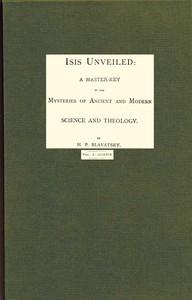|
|
Read this ebook for free! No credit card needed, absolutely nothing to pay.Words: 105258 in 18 pages
This is an ebook sharing website. You can read the uploaded ebooks for free here. No credit cards needed, nothing to pay. If you want to own a digital copy of the ebook, or want to read offline with your favorite ebook-reader, then you can choose to buy and download the ebook.

: An historical and moral view of the origin and progress of the French Revolution; and the effect it has produced in Europe by Wollstonecraft Mary - France History Revolution 1789-1799 Causes@FreeBooksThu 08 Jun, 2023 AN HISTORICAL AND MORAL VIEW OF THE FRENCH REVOLUTION. When we contemplate the infancy of man, his gradual advance towards maturity, his miserable weakness as a solitary being, and the crudeness of his first notions respecting the nature of civil society, it will not appear extraordinary, that the acquirement of political knowledge has been so extremely slow; or that public happiness has not been more rapidly and generally diffused. The perfection attained by the ancients, it is true, has ever afforded the imagination of the poetical historian a theme to deck with the choicest flowers of rhetoric; though the cool investigation of facts seems clearly to prove, that the civilization of the world, hitherto, has consisted rather in cultivating the taste, than in exercising the understanding. And were not these vaunted improvements also confined to a small corner of the globe, whilst, the political view of the wisest legislators seldom extending beyond the splendour and aggrandizement of their individual nation, they trampled with a ferocious affectation of patriotism on the most sacred rights of humanity? When the arts flourished in Greece, and literature began to shed it's blandishments on society, the world was mostly inhabited by barbarians, who waged eternal war with their more polished neighbours, the imperfection of whose government sapping it's foundation, the science of politics necessarily received a check in the bud--and when we find, likewise, the roman empire crumbling into atoms, from the germ of a deadly malady implanted in it's vitals; whilst voluptuousness stopped the progress of civilization, which makes the perfection of the arts the dawn of science; we shall be convinced, that it demanded ages of improving reason and experience in moral philosophy, to clear away the rubbish, and exhibit the first principles of social order. We have probably derived our great superiority over those nations from the discovery of the polar attraction of the needle, the perfection which astronomy and mathematics have attained, and the fortunate invention of printing. For, whilst the revival of letters has added the collected wisdom of antiquity to the improvements of modern research, the latter most useful art has rapidly multiplied copies of the productions of genius and compilations of learning, bringing them within the reach of all ranks of men: the scientific discoveries also have not only led us to new worlds; but, facilitating the communication between different nations, the friction of arts and commerce have given to society the transcendently pleasing polish of urbanity; and thus, by a gradual softening of manners, the complexion of social life has been completely changed. But the remains of superstition, and the unnatural distinction of privileged classes, which had their origin in barbarous folly, still fettered the opinions of man, and sullied his native dignity; till several distinguished english writers discussed political subjects with the energy of men, who began to feel their strength; and, whilst only a rumour of these sentiments roused the attention and exercised the minds of some men of letters in France, a number of staunch disputants, who had more thoroughly digested them, fled from oppression, to put them to the test of experience in America. The revolution, it is true, soon introduced the corruption, that has ever since been corroding british freedom.--Still, when the rest of Europe groaned under the weight of the most unjust and cruel laws, the life and property of englishmen were comparatively safe; and, if an impress-warrant respected the distinction of ranks, when the glory of England was at stake, splendid victories hid this flaw in the best existing constitution; and all exultingly recollected, that the life or liberty of a man never depended on the will of an individual. Englishmen were then, with reason, proud of their constitution; and, if this noble pride have degenerated into arrogance, when the cause became less conspicuous, it is only a venial lapse of human nature; to be lamented merely as it stops the progress of civilization, and leads the people to imagine, that their ancestors have done every thing possible to secure the happiness of society, and meliorate the condition of man, because they have done much. When learning was confined to a small number of the citizens of a state, and the investigation of it's privileges was left to a number still smaller, governments seem to have acted, as if the people were formed only for them; and, ingeniously confounding their rights with metaphysical jargon, the luxurious grandeur of individuals has been supported by the misery of the bulk of their fellow creatures, and ambition gorged by the butchery of millions of innocent victims. The most artful chain of despotism has ever been supported by false notions of duty, enforced by those who were to profit by the cheat. Thus has the liberty of man been restrained; and the spontaneous flow of his feelings, which would have fertilized his mind, being choked at the source, he is rendered in the same degree unhappy as he is made unnatural. Yet, certain opinions, planted by superstition and despotism, hand in hand, have taken such deep root in our habits of thinking, it may appear daringly licentious, as well as presumptuous, to observe, that what is often termed virtue, is only want of courage to throw off prejudices, and follow the inclinations which fear not the eye of heaven, though they shrink from censure not founded on the natural principles of morality. But at no period has the scanty diffusion of knowledge permitted the body of the people to participate in the discussion of political science; and if philosophy at length have simplified the principles of social union, so as to render them easy to be comprehended by every sane and thinking being; if appears to me, that man may contemplate with benevolent complacency and becoming pride, the approaching reign of reason and peace. Besides, if men have been rendered unqualified to judge with precision of their civil and political rights, from the involved state in which sophisticating ignorance has placed them, and thus reduced to surrender their reasoning powers to noble fools, and pedantic knaves, it is not surprizing, that superficial observers have formed opinions unfavourable to the degree of perfection, which our intellectual faculties are able to attain, or that despotism should attempt to check the spirit of inquiry, which, with colossian strides, seems to be hastening the overthrow of oppressive tyranny and contumelious ambition. Nature having made men unequal, by giving stronger bodily and mental powers to one than to another, the end of government ought to be, to destroy this inequality by protecting the weak. Instead of which, it has always leaned to the opposite side, wearing itself out by disregarding the first principle of it's organization. It appears to be the grand province of government, though scarcely acknowledged, so to hold the balance, that the abilities or riches of individuals may not interfere with the equilibrium of the whole. For, as it is vain to expect, that men should master their passions during the heat of action, legislators should have this perfection of laws ever in view, when, calmly grasping the interest of humanity, reason assures them, that their own is best secured by the security of the commonweal. The first social systems were certainly founded by passion; individuals wishing to fence round their own wealth or power, and make slaves of their brothers to prevent encroachment. Their descendants have ever been at work to solder the chains they forged, and render the usurpations of strength secure, by the fraud of partial laws: laws that can be abrogated only by the exertions of reason, emancipating mankind, by making government a science, instead of a craft, and civilizing the grand mass, by exercising their understandings about the most important objects of inquiry. After the revolution in 1688, however, political questions were no longer discussed in England on a broad scale; because that degree of liberty was enjoyed, which enabled thinking men to pursue without interruption their own business; or, if some men complained, they attached themselves to a party, and descanted on the unavoidable misery produced by contending passions. Free books android app tbrJar TBR JAR Read Free books online gutenberg More posts by @FreeBooks
: Modern house-plans for everybody For village and country residences costing from two hundred and fifty dollars to eight thousand dollars by Reed S B Samuel Burrage - Architecture Domestic Designs and plans@FreeBooksThu 08 Jun, 2023

: Isis unveiled Volume 1 (of 2) Science A master-key to mysteries of ancient and modern science and theology by Blavatsky H P Helena Petrovna - Theosophy@FreeBooksThu 08 Jun, 2023
|
Terms of Use Stock Market News! © gutenberg.org.in2025 All Rights reserved.






